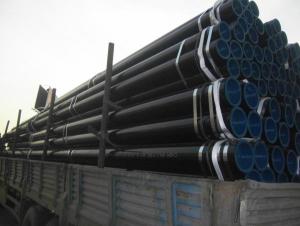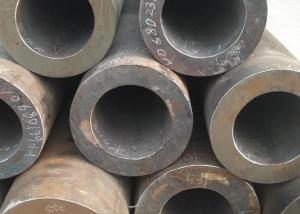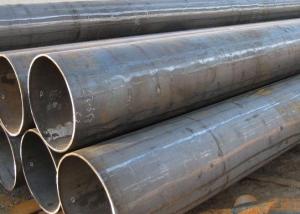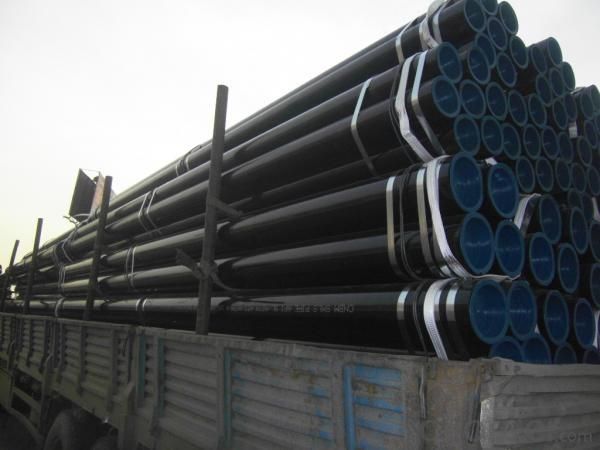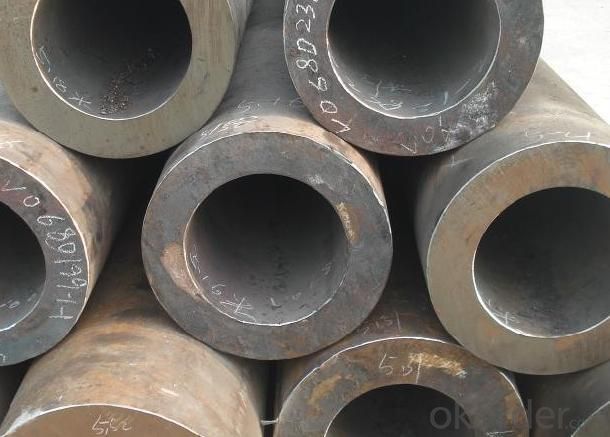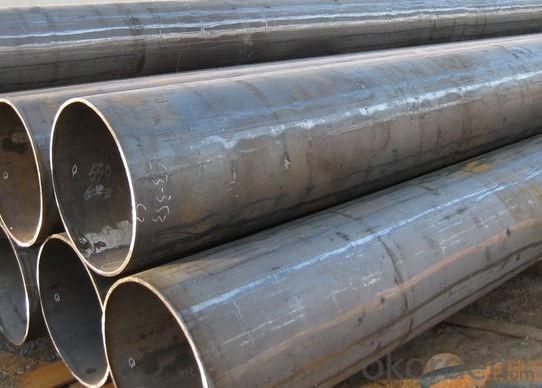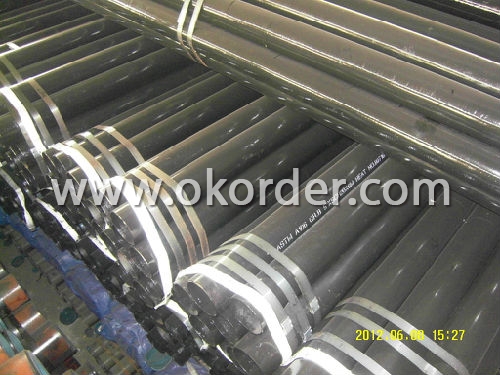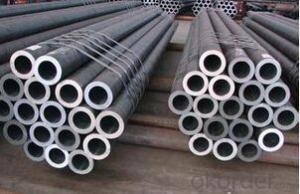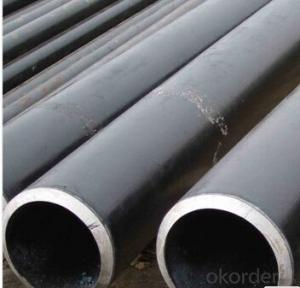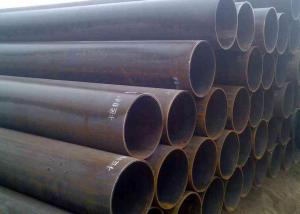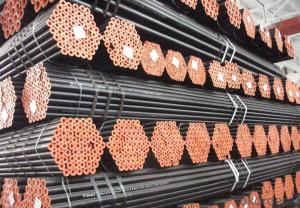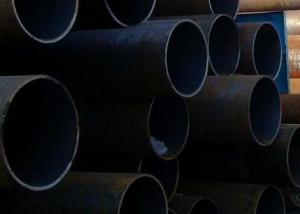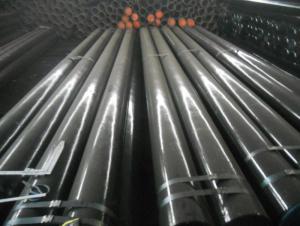ASTM A213-95a Seamless Steel Pipe For Low and Medium Pressure Boilers
- Loading Port:
- Tian Jin Port
- Payment Terms:
- TT or LC
- Min Order Qty:
- 50 MT m.t.
- Supply Capability:
- 5000 Tons Per Month m.t./month
OKorder Service Pledge
OKorder Financial Service
You Might Also Like
| Seamless Steel Tubes and Pipes for Low and Medium Pressure Boiler |
| |||||||||||||||||||||||||||||||||||||||||||||||||||||||||||
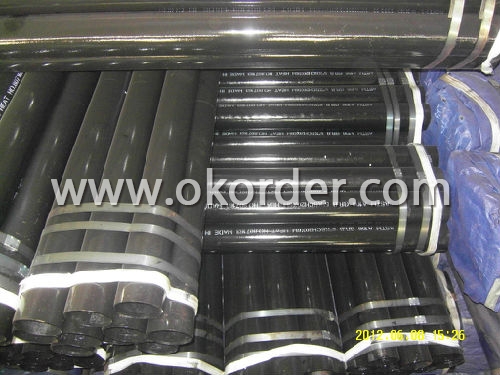
- Q: What are the common uses of stainless steel pipes?
- Stainless steel pipes are widely used in various industries for a multitude of applications. Some of the common uses of stainless steel pipes include: 1. Plumbing and Water Supply: Stainless steel pipes are often used in residential, commercial, and industrial plumbing systems due to their corrosion resistance, durability, and ability to handle high-pressure applications. They are also used in water treatment plants and wastewater management systems. 2. Oil and Gas Industry: Stainless steel pipes are extensively used in the oil and gas industry for transporting oil, gas, and other fluids. They can withstand high temperatures, pressure, and corrosive environments, making them ideal for this industry. 3. Food and Beverage Industry: Stainless steel pipes are widely used in the food and beverage industry due to their hygienic properties and resistance to corrosion. They are commonly used for transporting liquids, gases, and food products in processing plants, breweries, wineries, dairies, and other food-related facilities. 4. Chemical and Petrochemical Industry: Stainless steel pipes are critical in the chemical and petrochemical industry, where they are used for transporting corrosive chemicals, acids, and other hazardous substances. The pipes' resistance to corrosion and high temperatures makes them suitable for these demanding applications. 5. Construction and Architecture: Stainless steel pipes are used in construction and architecture for various purposes such as structural support, handrails, guardrails, and decorative elements. Their strength, durability, and aesthetic appeal make them a popular choice in modern architectural designs. 6. Automotive and Transportation: Stainless steel pipes are used in the automotive industry for exhaust systems, fuel lines, and other components that require resistance to high temperatures and corrosion. They are also used in the transportation of fluids and gases in ships, trains, and airplanes. 7. Pharmaceutical Industry: The pharmaceutical industry requires high-quality materials that meet stringent sanitary standards. Stainless steel pipes are commonly used in pharmaceutical manufacturing processes for transporting liquids, gases, and chemicals due to their cleanability, corrosion resistance, and compatibility with pharmaceutical products. 8. Power Generation: Stainless steel pipes are used in power plants, both conventional and renewable, for various applications such as steam lines, condensers, and heat exchangers. They are chosen for their ability to withstand high temperatures, pressure, and corrosive environments. In summary, stainless steel pipes find applications in a wide range of industries including plumbing, oil and gas, food and beverage, chemical and petrochemical, construction, automotive, pharmaceutical, and power generation. Their corrosion resistance, durability, and ability to handle high temperatures and pressure make them a versatile and reliable choice for various industrial applications.
- Q: How to identify stainless steel pipe and steel pipe?
- Stainless steel (Stainless Steel) is referred to as the stainless steel, the resistance of air, steam, water and other weak corrosive medium or with stainless steel known as stainless steel; while the resistance to chemical corrosion (acid, alkali and salt chemical etching) corrosion of steel called acid resistant steel. Because of the difference in the chemical composition of the two, and make their corrosion resistance is different, ordinary stainless steel is generally not resistant to chemical medium corrosion, and acid resistant steel are generally stainless steel.
- Q: How are steel pipes used in petrochemical plants?
- Steel pipes are extensively used in petrochemical plants for various purposes such as transporting fluids and gases, as well as providing structural support. These pipes are commonly utilized for the safe and efficient transfer of crude oil, natural gas, and other chemicals within the plant. They are designed to withstand high pressure, extreme temperature conditions, and corrosive environments, ensuring the integrity and reliability of the plant's operations. Steel pipes also play a crucial role in the construction of process equipment, such as reactors, distillation columns, and heat exchangers, providing a durable and long-lasting solution for the petrochemical industry.
- Q: How are steel pipes used in irrigation systems?
- Steel pipes are commonly used in irrigation systems to transport water from a water source, such as a well or a reservoir, to the fields or plants that need to be irrigated. These pipes are durable, strong, and resistant to corrosion, making them ideal for withstanding the constant flow of water and the harsh outdoor conditions. They are typically laid underground or above the surface, depending on the specific irrigation system design, and are connected to sprinklers or drip irrigation systems to distribute water efficiently and effectively to the crops or plants.
- Q: How are steel pipes protected against UV radiation?
- Steel pipes are typically protected against UV radiation through the application of coatings or paints that contain UV inhibitors. These coatings act as a barrier between the steel surface and the harmful UV rays, preventing damage and degradation of the pipes over time. Additionally, some steel pipes may be treated with zinc or other metals, which offer inherent UV protection and enhance the overall durability of the pipes.
- Q: Can steel pipes be used for desalination plants?
- Yes, steel pipes can be used for desalination plants. Steel pipes are commonly used in desalination plants for transporting seawater, brine, and treated water due to their high strength, durability, and resistance to corrosion. They can withstand the harsh conditions and corrosive nature of saltwater, making them a suitable choice for the construction and operation of desalination plants.
- Q: How do you protect steel pipes from fire?
- There are several measures available to protect steel pipes from fire. One commonly used approach involves applying fire-resistant coatings or paints to the surface of the pipes. These coatings or paints are specifically designed to endure high temperatures and create a barrier that prevents heat from reaching the steel. Another effective method is to wrap the steel pipes with fire-resistant insulation materials. These materials serve as a buffer, reducing heat transfer and slowing down the spread of fire. Mineral wool or ceramic fiber blankets are commonly utilized for this purpose. It is also crucial to ensure proper installation and support for the steel pipes. This includes maintaining adequate clearance from other flammable substances and avoiding overcrowding or obstructions that could hinder the flow of air around the pipes. Sufficient spacing between pipes is also essential to prevent heat transfer between them. Moreover, incorporating firestop systems is recommended when steel pipes pass through fire-rated walls or floors. These systems consist of fire-resistant materials and seals that prevent the spread of fire and smoke through openings or penetrations in fire-rated barriers. Regular maintenance and inspections are essential to uphold the ongoing effectiveness of the fire protection measures. Any damage or deterioration of the coatings, insulation, or firestop systems should be promptly addressed to maintain the fire resistance of the steel pipes. In conclusion, a combination of fire-resistant coatings, insulation, proper installation, and maintenance practices is imperative for safeguarding steel pipes against fire hazards. These measures play a crucial role in minimizing the risk of fire-related damage and ensuring the safety of both the pipes and the surrounding environment.
- Q: How are steel pipes protected against corrosion?
- Steel pipes are protected against corrosion through various methods such as coating them with corrosion-resistant materials like epoxy or zinc, cathodic protection using sacrificial anodes or impressed current systems, and maintaining a protective layer on the pipe's surface through regular maintenance and inspection.
- Q: How are steel pipes used in the construction of biomass power plants?
- Steel pipes are used in the construction of biomass power plants for various purposes, including transporting and distributing steam, water, and other fluids throughout the facility. They are also used for the construction of boiler systems, as well as for conveying fuel and exhaust gases. In addition, steel pipes are essential for the structural integrity of the plant, providing support and durability in various applications.
- Q: How are steel pipes used in the manufacturing of pulp and paper mills?
- Steel pipes are commonly used in the manufacturing of pulp and paper mills for various purposes. They are primarily utilized for transporting water, chemicals, and steam throughout the mill's processes. Steel pipes are also employed for structural support, such as in the construction of storage tanks, conveyors, and equipment frames. Additionally, they are used for providing compressed air, ensuring efficient operation of machinery and processes. Overall, steel pipes play a crucial role in facilitating the smooth functioning and efficient production of pulp and paper mills.
1. Manufacturer Overview
| Location | Jiangsu, China |
| Year Established | 1992 |
| Annual Output Value | 60,000Tons |
| Main Markets | Europe and the United States;Canada; India;Bulgaria; South Korea;etc. |
| Company Certifications | API 5L;API 5CT;GB/T19001-2008 idt ISO9001:2008 |
2. Manufacturer Certificates
| a) Certification Name | |
| Range | |
| Reference | |
| Validity Period |
3. Manufacturer Capability
| a) Trade Capacity | |
| Nearest Port | Yan Cheng |
| Export Percentage | 50% - 60% |
| No.of Employees in Trade Department | 400-500 People |
| Language Spoken: | English; Chinese; Spanish |
| b) Factory Information | |
| Factory Size: | Above 110,000 square meters |
| No. of Production Lines | Above 10 |
| Contract Manufacturing | OEM Service Offered; Design Service Offered |
| Product Price Range | Average |
Send your message to us
ASTM A213-95a Seamless Steel Pipe For Low and Medium Pressure Boilers
- Loading Port:
- Tian Jin Port
- Payment Terms:
- TT or LC
- Min Order Qty:
- 50 MT m.t.
- Supply Capability:
- 5000 Tons Per Month m.t./month
OKorder Service Pledge
OKorder Financial Service
Similar products
Hot products
Hot Searches
Related keywords
